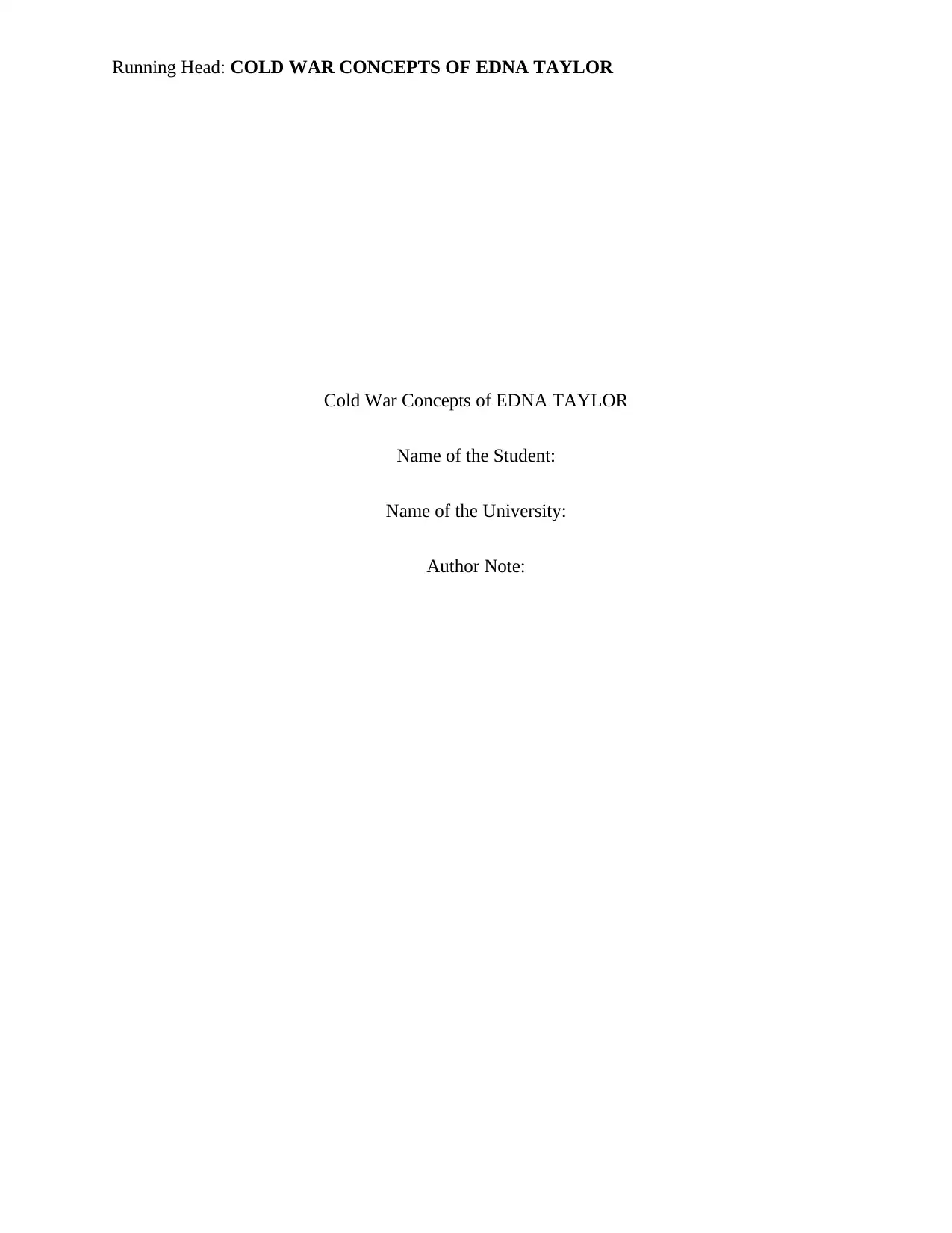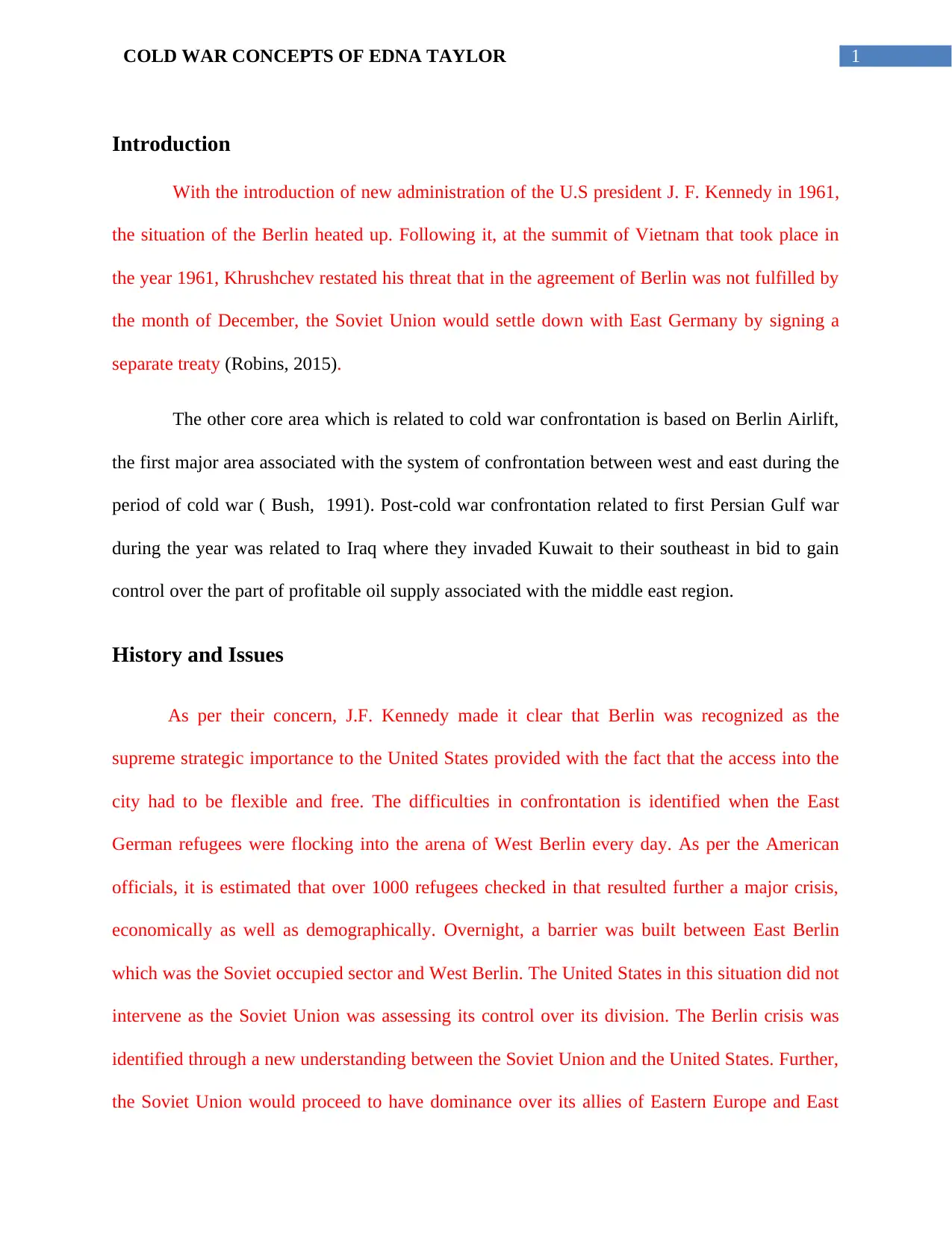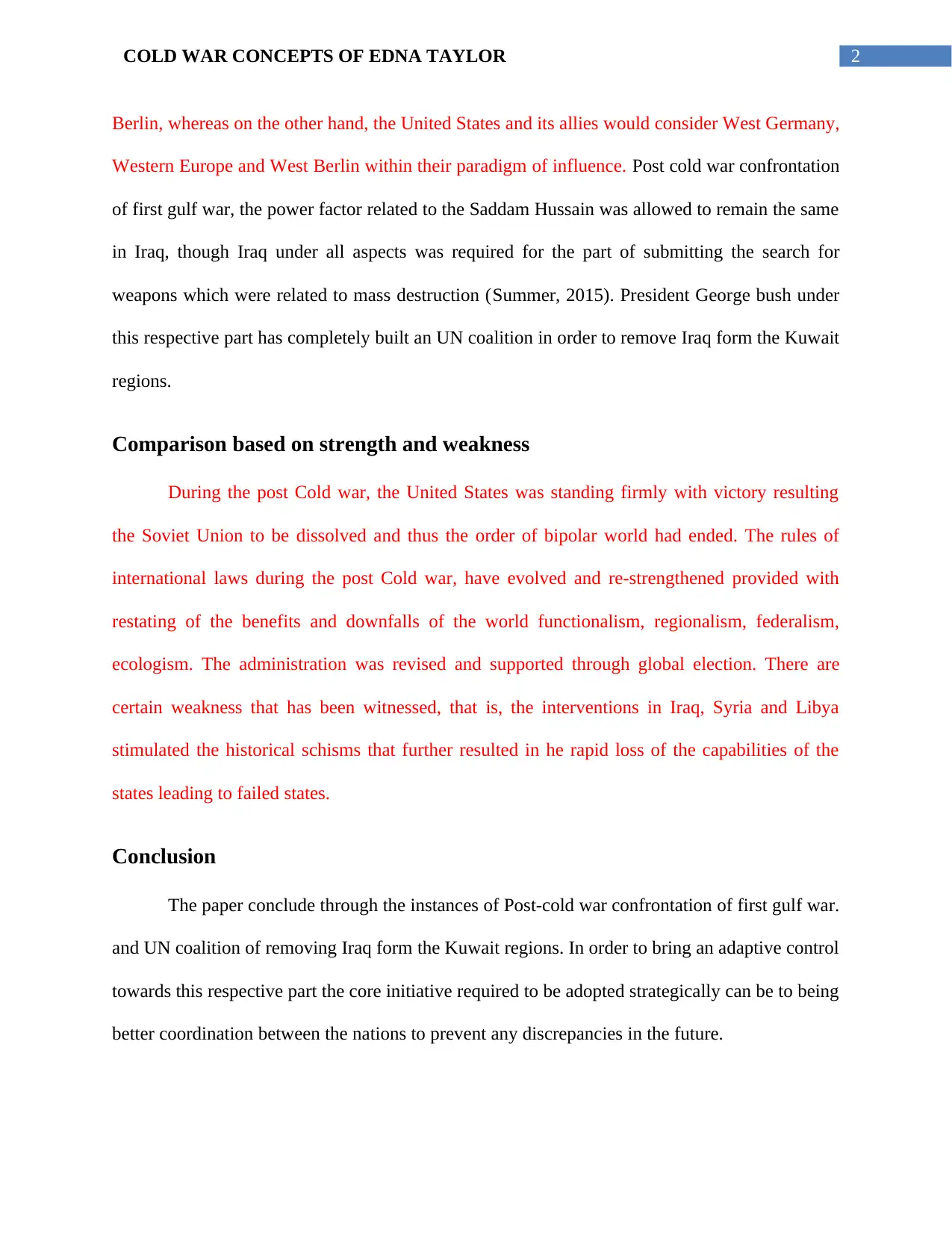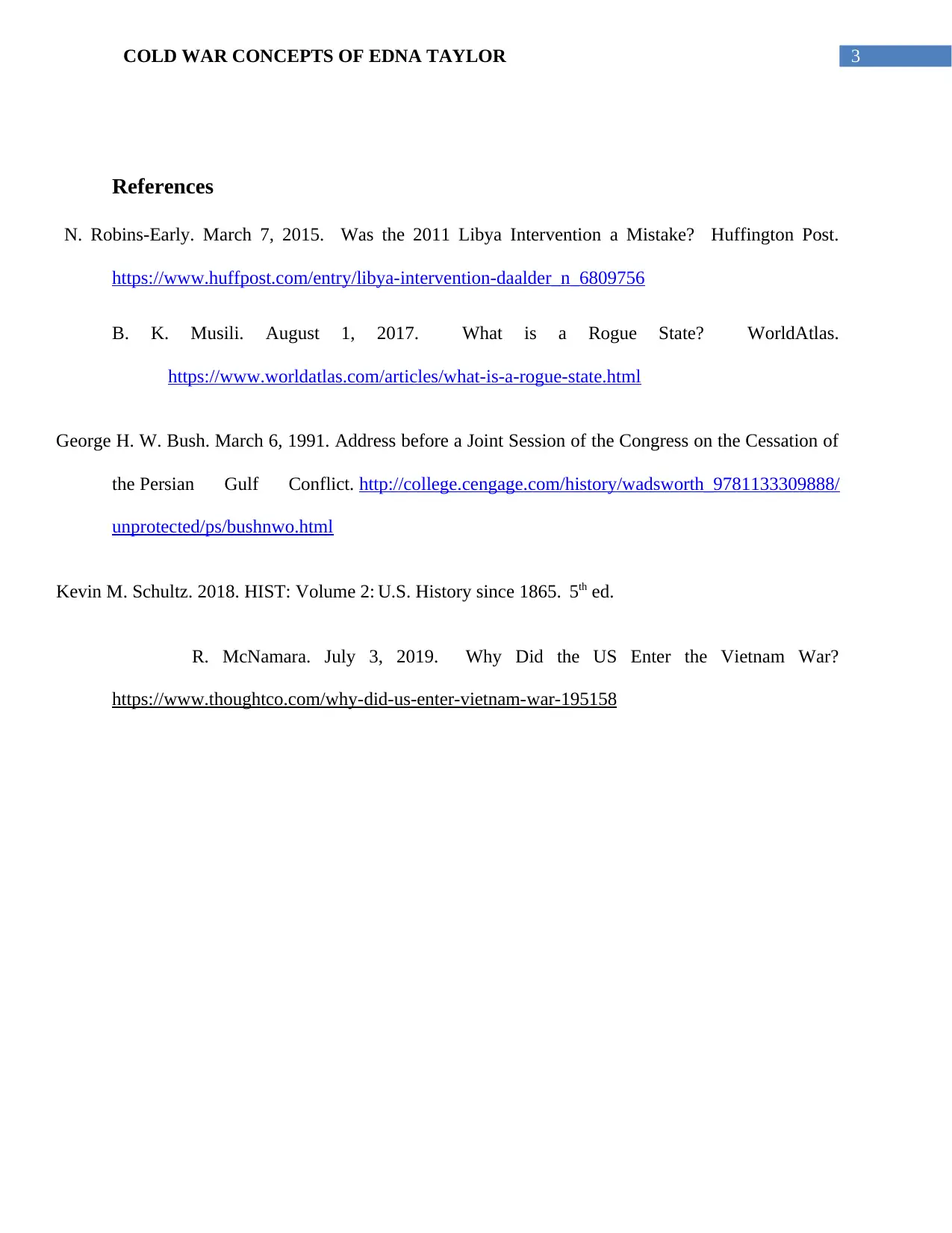Assignment 3: History 105: America's Superpower and Cold War Concepts
VerifiedAdded on 2022/08/16
|5
|782
|14
Essay
AI Summary
This essay, prepared for History 105, explores America's role as a superpower from the Cold War era to the present, focusing on strategic concerns and confrontations. The essay examines two key examples: the Berlin Airlift during the Cold War and the First Persian Gulf War in the post-Cold War period. It analyzes the historical context, issues, strengths, and weaknesses associated with each confrontation. The author discusses the significance of the Berlin crisis, the Soviet Union's dominance in Eastern Europe, and the United States' influence in the West. The essay also covers the post-Cold War dynamics, particularly the power dynamics related to Saddam Hussein and the UN coalition. The conclusion emphasizes the need for better international coordination to prevent future discrepancies, drawing on instances from both the Cold War and post-Cold War periods. The paper utilizes multiple sources to support its arguments and provides a comprehensive analysis of America's international superpower role.
1 out of 5











![[object Object]](/_next/static/media/star-bottom.7253800d.svg)